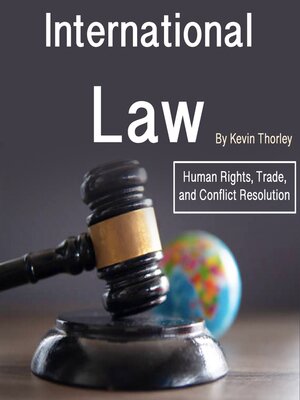International Law
audiobook (Unabridged) ∣ Human Rights, Trade, and Conflict Resolution
By Kevin Thorley

Sign up to save your library
With an OverDrive account, you can save your favorite libraries for at-a-glance information about availability. Find out more about OverDrive accounts.
Find this title in Libby, the library reading app by OverDrive.



Search for a digital library with this title
Title found at these libraries:
| Library Name | Distance |
|---|---|
| Loading... |
International law is a complex system that governs relations between states and other international actors. It derives from several key sources, with treaties, customary international law, and general principles of law being the primary ones. Here's an overview of these sources:
Treaties are formal agreements between states or international organizations. They are the most explicit source of international law and are binding on the parties that have ratified them. Treaties can be bilateral (between two parties) or multilateral (involving multiple parties). Examples include the United Nations Charter, the Geneva Conventions, and various human rights treaties. The Vienna Convention on the Law of Treaties governs how treaties are made, interpreted, and terminated.
Customary international law develops from the consistent practice of states accompanied by a sense of legal obligation (opinio juris). It's not written down in a formal document but emerges over time as states consistently behave in a certain way out of a belief that such behavior is legally required. Examples include diplomatic immunity and the prohibition of piracy. Customary law can be universal or regional and can evolve over time.







